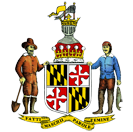Selected Bibliography
Web sites:
There are several web sites worth viewing including:
one in England which provides a good introduction to the literature.
Brundage, W. Fitzhugh. Lynching
in the New South : Georgia and Virginia, 1880-1930. Urbana:
University of Illinois Press, 1993.
Capeci, Dominic J. The Lynching Of
Cleo Wright. Lexington: University Press of Kentucky, 1998.
Chadbourn, James Harmon. Lynching
And The Law. Chapel Hill, The University of North Carolina Press,
1933.
Cutler, James Elbert. Lynch-Law;
An Investigation Into The History Of Lynching In The United States.
Montclair, N.J., Patterson Smith, 1969.
Downey, Dennis B. No Crooked
Death : Coatesville, Pennsylvania, and the lynching of Zachariah Walker.
Urbana:
University of Illinois Press, 1991.
Gambino, Richard. Vendetta: A
True Story Of The Worst Lynching In America, The Mass Murder Of Italian-Americans
In New Orleans In 1891, The Vicious
Motivations Behind It, And The Tragic
Repercussions That Linger To This Day. Garden City, N.Y.: Doubleday,
1977.
Gunning, Sandra. Race, rape, and lynching
: the red record of American literature, 1890-1912. New York: Oxford
University Press, 1996.
Hall, Jacquelyn Dowd. Revolt
Against Chivalry: Jessie Daniel Ames And The Women's Campaign Against Lynching.
New
York: Columbia University Press, 1979.
Howard, Gene L. Death At Cross
Plains: An Alabama Reconstruction Tragedy. University, Ala: University
of Alabama Press, 1984.
Johnson, James Weldon. "Lynching: America's National Disgrace," pamphlet, 1924. In Koger papers, Jefferson Patterson Park.
Koger, A. Briscoe. Link to inventory of Koger papers, Jefferson Patterson Park and Museum, St. Leonard, Maryland. (Collection is the property of the Banneker-Douglass museum, Annapolis.)
Koger, A. Briscoe. "A Generation of Lynching in the U.S. 1921-1946," lynchings in the southern states, 1921-1945. In Koger papers, box 5, Jefferson Patterson Park and Museum, St. Leonard, Maryland.
Koger, A. Briscoe. "52-Year Lynching Record Ranks Maryland 27th with 30 of 4,361 Crimes," c. 1933; "Maryland's Lynching Record," undated. In Koger papers, Jefferson Patterson Park and Museum, St. Leonard, Maryland.
Miller, E. C. Invitation To A
Lynching. Garden City, New York: Doubleday, 1975.
Moses, Norton H. Lynching And
Vigilantism In The United States : An Annotated Bibliography. Compiled
by Norton H. Moses. Westport, Conn: Greenwood
Press, 1997.
National Association for the Advancement
of Colored People. Burning At Stake In The United States : A Record
Of The Public Burning By Mobs Of Five Men,
During The First Five Months Of 1919,
In The States Of Arkansas, Florida, Georgia, Mississippi, And Texas. Baltimore,
MD : Black Classic Press, 1986.
National Association for the Advancement
of Colored People. Thirty Years Of Lynching In The United States,
1889-1918. New York, Negro Universities Press, [1969].
Raper, Arthur Franklin. The Tragedy
Of Lynching. Chapel Hill, University of North Carolina Press, 1933.
Ross, John. At The Bar Of Judge
Lynch : Lynching And Lynch Mobs In America. 1983.
Shay, Frank. Judge Lynch, His
First Hundred Years. New York, I. Washburn, Inc. [c1938].
Royster, Jacqueline Jones, ed. Southern Horrors and Other Writings: The Anti-Lynching Campaign of Ida B. Wells, 1892-1900. Boston: Bedford Books, 1997.
Smead, Howard. Blood Justice
: The Lynching Of Mack Charles Parker. New York: Oxford University
Press, 1986.
Wells-Barnett, Ida B. On Lynchings:
Southern Horrors, A Red Record, Mob Rule In New Orleans. New
York, Arno Press, 1969.
White, Walter Francis. Rope And
Faggot : A Biography Of Judge Lynch.With a new preface by Roy Wilkins.
Salem, N.H: Ayer, 1992.
White, Walter Francis. The Work
Of A Mob. Indianapolis, Indiana: College Division, Bobbs-Merrill Company,
[19--?].
Wright, George C. Racial Violence In
Kentucky, 1865-1940 : Lynchings, Mob Rule, And "Legal Lynchings." Baton
Rouge : Louisiana State University Press, 1990.
Zangrando, Robert L. The NAACP Crusade
Against Lynching, 1909-1950.
Philadelphia: Temple University Press,
1980.
